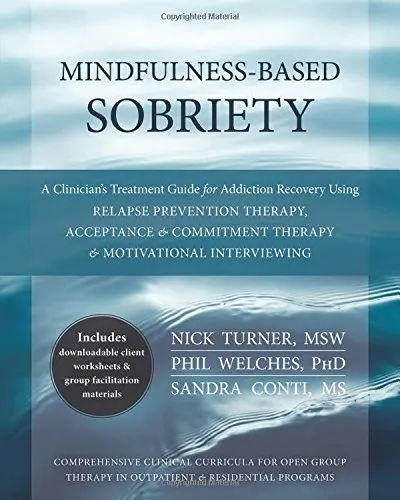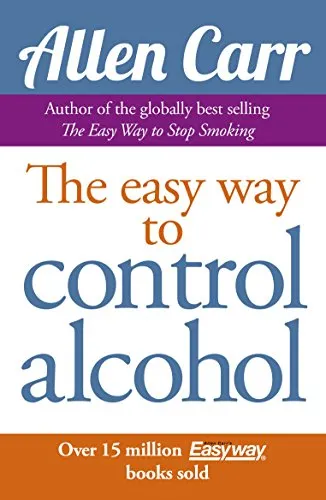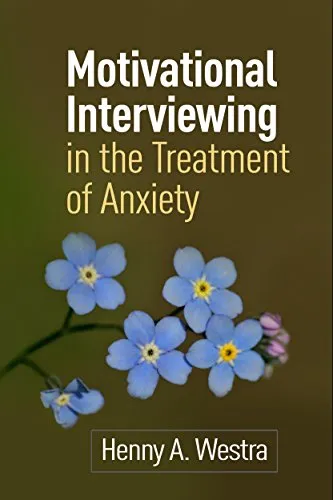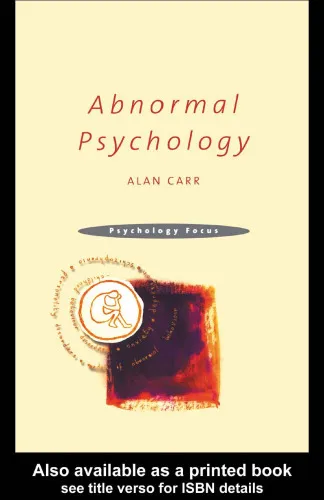Mindfulness-Based Sobriety: A Clinician’s Treatment Guide for Addiction Recovery Using Relapse Prevention Therapy, Acceptance and Commitment Therapy, and Motivational Interviewing
4.6
Reviews from our users

You Can Ask your questions from this book's AI after Login
Each download or ask from book AI costs 2 points. To earn more free points, please visit the Points Guide Page and complete some valuable actions.Related Refrences:
Introduction to "Mindfulness-Based Sobriety"
"Mindfulness-Based Sobriety: A Clinician’s Treatment Guide for Addiction Recovery Using Relapse Prevention Therapy, Acceptance and Commitment Therapy, and Motivational Interviewing" is a comprehensive and transformative guide for professionals working with individuals facing addiction and substance use disorders. It integrates evidence-based therapeutic modalities like Relapse Prevention Therapy (RPT), Acceptance and Commitment Therapy (ACT), and Motivational Interviewing (MI), with the powerful and grounding practice of mindfulness. Our goal with this book is to equip clinicians with the tools and frameworks necessary to foster lasting recovery while meeting clients where they are on their journey.
Grounded in scientific research and enhanced by real-world practice, this guide provides actionable strategies and interventions that bridge the gap between theory and application. Addiction recovery is a deeply personal and challenging process, and this book seeks to amplify the clinician's ability to support individuals in overcoming barriers, re-establishing control, and finding meaning in their lives. Whether you are a seasoned therapist or a practitioner new to addiction treatment, this book offers critical insights and tools for supporting clients through their sobriety journey.
Detailed Summary of the Book
At its core, "Mindfulness-Based Sobriety" serves as a structured yet flexible framework for guiding individuals through the complexity of addiction recovery. The book is organized into sections that systematically address the different nuances of evidence-based substance use treatment while integrating mindfulness to support long-term well-being.
The Relapse Prevention Therapy (RPT) approach emphasizes identifying and managing triggers while helping clients anticipate high-risk situations. Through these lessons, clinicians are encouraged to support clients in building the skills necessary to maintain control during temptations and stressors.
Using Acceptance and Commitment Therapy (ACT), the book guides readers in helping clients develop psychological flexibility, redefine relationships with their emotional pain, and live in alignment with their core values. This section offers practical tools for helping clients accept the discomfort of the recovery process and commit to actionable changes.
Motivational Interviewing (MI) forms the foundation of how clinicians can foster empathy and guide clients towards self-driven change. By understanding the stages of readiness and supporting intrinsic motivation, MI helps establish trust and accountability.
Finally, mindfulness is woven throughout the book as a transformative practice that enhances emotional regulation, awareness, and compassion. Clinicians are equipped with mindfulness exercises and techniques to integrate into their sessions and empower clients to stay in tune with the present moment.
Key Takeaways
- The importance of integration between evidence-based approaches like RPT, ACT, and MI to provide a well-rounded addiction recovery framework.
- Practical, adaptable tools for clinicians to use in individual and group therapy settings.
- The necessity of addressing both the emotional and cognitive challenges around addiction while ensuring that treatment remains person-centered.
- How mindfulness fosters emotional resilience, cultivates self-awareness, and strengthens the ability to remain present during stressful situations.
Famous Quotes from the Book
“Recovery is not just about achieving sobriety; it’s about reclaiming the life that addiction has overshadowed. Every step forward, no matter how small, is progress.”
“Mindfulness offers a pause—a space to observe, to feel, and to respond to cravings and triggers, rather than mindlessly reacting to them.”
“Change rooted in values is enduring. Motivational interviewing plants the seed, mindfulness nurtures it, and therapeutic techniques like ACT and RPT guide its growth.”
Why This Book Matters
Addiction is a multifaceted challenge that impacts individuals, families, and communities. While there is no one-size-fits-all solution, an integrative approach like the one described in "Mindfulness-Based Sobriety" provides clinicians with a roadmap for delivering comprehensive and compassionate care. This book matters because it emphasizes the human side of addiction treatment while embracing the need for evidence-informed practices.
This guide not only helps professionals address the immediate needs of those in recovery but also considers their long-term emotional and psychological health. Its emphasis on mindfulness and values alignment empowers individuals to sustain their sobriety while building lives filled with purpose and meaning.
Ultimately, "Mindfulness-Based Sobriety" underscores the importance of collaboration, empathy, and resilience—qualities that enhance not only the therapeutic relationship but also the recovery journey itself. It is a vital resource for clinicians who seek to make a lasting difference in the lives of their clients.
Free Direct Download
You Can Download this book after Login
Accessing books through legal platforms and public libraries not only supports the rights of authors and publishers but also contributes to the sustainability of reading culture. Before downloading, please take a moment to consider these options.
Find this book on other platforms:
WorldCat helps you find books in libraries worldwide.
See ratings, reviews, and discussions on Goodreads.
Find and buy rare or used books on AbeBooks.
1254
بازدید4.6
امتیاز0
نظر98%
رضایتReviews:
4.6
Based on 0 users review
Questions & Answers
Ask questions about this book or help others by answering
No questions yet. Be the first to ask!














